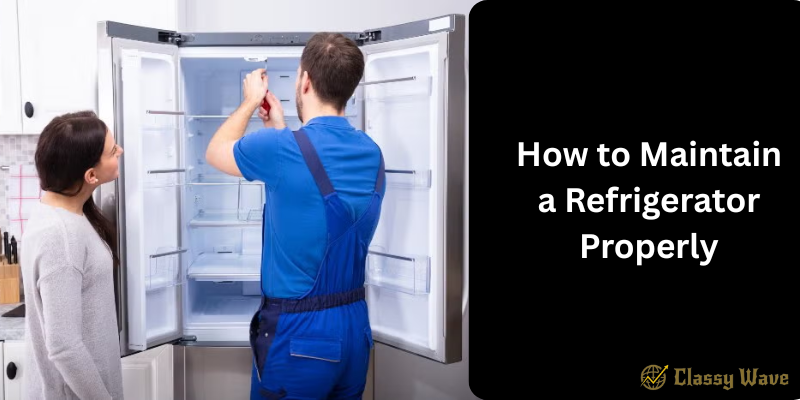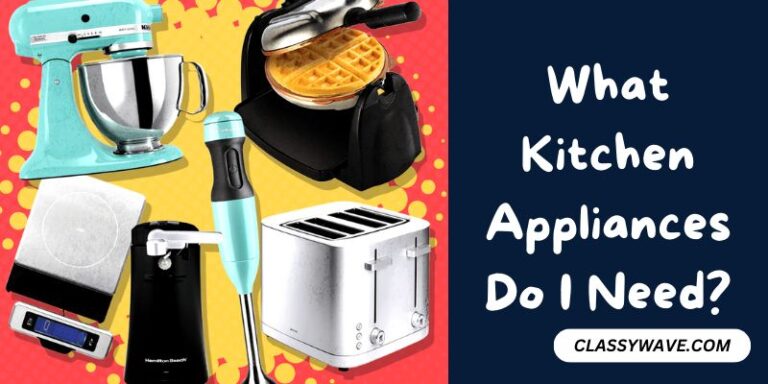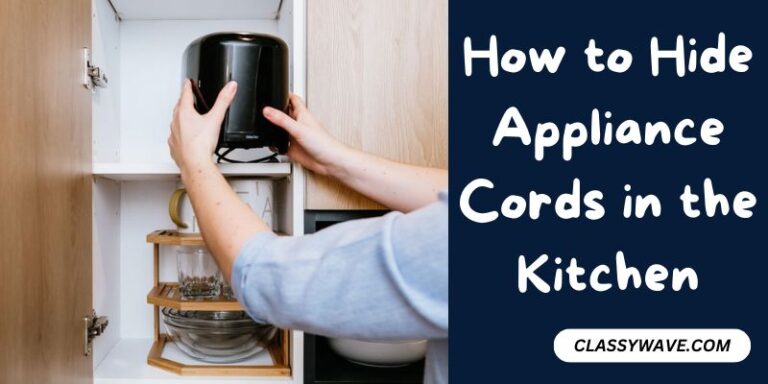How to Maintain a Refrigerator Properly | Classy Wave
Keeping your refrigerator in top shape isn’t just about cleanliness—it’s also about performance, energy efficiency, and extending its lifespan. A well-maintained fridge helps your food stay fresh longer and saves you money on energy bills and repairs. Let’s dive into some simple, effective ways to properly maintain your refrigerator.
Why Refrigerator Maintenance Matters
Your refrigerator runs 24/7, making it one of the hardest-working appliances in your home. Regular maintenance ensures it works efficiently, prevents unexpected breakdowns, and reduces energy consumption. Plus, who doesn’t love a fresh-smelling, well-organized fridge?
1. Clean the Interior Regularly
Start by cleaning the inside of your refrigerator every month. Remove all food items, shelves, and drawers. Use a mixture of mild dish soap and warm water to wipe surfaces. Avoid harsh chemicals, as they can damage the interior and leave odors.
Tip: Keep an open box of baking soda inside to absorb unwanted smells.
2. Check and Clean the Door Seals
Dirty or loose door seals can let cold air escape, forcing your fridge to work harder. Wipe them down with a damp cloth and mild soap. If you notice cracks or gaps, replace the seals promptly. You can test them by closing the door on a piece of paper—if it slides out easily, the seal may need fixing.
3. Set the Right Temperature
Keeping your fridge at the right temperature is crucial. The refrigerator section should be around 37°F (3°C) and the freezer at 0°F (-18°C). This balance ensures your food stays fresh without overworking the compressor.
4. Don’t Overload the Fridge
An overpacked refrigerator blocks airflow, leading to uneven cooling. Leave some space between items for air to circulate properly. A good rule is to fill your fridge about two-thirds full.
5. Clean the Coils
The condenser coils (usually at the back or bottom of your fridge) can accumulate dust and debris, reducing efficiency. Clean them every six months using a coil brush or vacuum. Always unplug the refrigerator before doing this.
6. Defrost When Needed
If you have a manual defrost model, don’t let ice build up thicker than a quarter-inch. Regular defrosting ensures the fridge cools properly and prevents overworking the motor.
7. Keep the Fridge Level
A refrigerator that isn’t level can cause doors not to close properly and may lead to drainage issues. Use a carpenter’s level to ensure it sits flat on the floor. Adjust the legs if needed.
8. Organize Food Smartly
Store raw meat on the lowest shelf, use airtight containers for leftovers, and don’t block the vents. Proper organization not only keeps your fridge tidy but also helps with efficient cooling.
9. Check the Drip Pan and Drain Hole
These parts collect condensation and can get clogged over time. Remove the drip pan carefully, wash it with warm water, and ensure the drain hole is clear using a pipe cleaner or a small brush.
10. Keep the Exterior Clean
Wipe down the outside of your refrigerator with a damp cloth. For stainless steel models, use a cleaner designed for stainless finishes to prevent streaks. Don’t forget the handles—they can harbor germs.
11. Be Mindful of Placement
Keep your refrigerator away from heat sources like ovens or direct sunlight. The extra heat can make the compressor work harder, leading to higher energy usage and faster wear.
12. Replace the Water Filter
If your fridge has a built-in water or ice dispenser, replace the filter every 6 months or as recommended by the manufacturer. This ensures clean water and prevents buildup inside the system.
13. Listen for Unusual Noises
A healthy refrigerator usually hums quietly. If you hear rattling, buzzing, or clicking, it may indicate an issue with the fan or compressor. Don’t ignore it—early repairs can save you from bigger problems later.
14. Energy-Saving Tips
- Keep the door closed as much as possible.
- Let hot food cool before placing it inside.
- Check the gasket regularly for air leaks.
- Keep the freezer full—it maintains temperature better.
15. Schedule Professional Maintenance
Even with regular care, it’s wise to have a professional inspect your fridge every year. They can check refrigerant levels, inspect electrical components, and ensure everything runs smoothly.
Conclusion
Maintaining your refrigerator properly doesn’t take much time but pays off in the long run. With just a few minutes of monthly care, you can keep it efficient, extend its life, and ensure your food stays fresh and safe. A clean, well-functioning fridge is the unsung hero of every kitchen—so give it the care it deserves!







